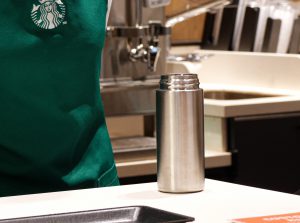
①Thinking about the global environment
Earth, our home planet, is the only place known in the universe to host life. While difficult to visualize this concept in our daily life, this home sustains people together with animals and all other living matter. We should remember this and be good residents of this earth by thinking about the global environment, amassing small actions and making wise choices as individuals.
●Using My-Tumbler
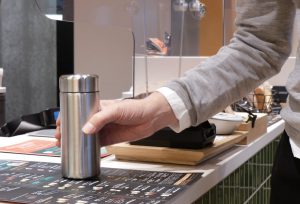
My-Tumbler
There is an initiative to serve purchased drinks in tumblers or mugs brought by customers.
As a thanks for helping to save resources, a 20 yen discount is offered from the main unit price (excluding tax).
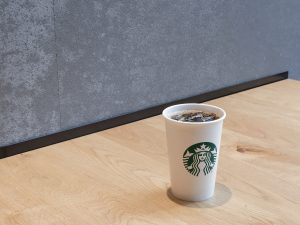 Reducing disposable plastic resources ― Serving iced beverages in paper cups.
Reducing disposable plastic resources ― Serving iced beverages in paper cups.
Iced products, such as iced coffee and iced tea were offered in plastic cups because of the problem of dew condensation. They are now being offered in new paper cups that can be used for both hot and cold beverages. By laminating the inside and outside cups become durable and are not easily affected by condensation, even with cold liquids. A “strawless lid” that can be used for hot and iced beverages, has also been introduced. By attaching a spout to the lid, the iced beverage can be consumed without a straw. Through this initiative, the amount of plastic used per cup has been reduced by approximately 60%. This will result in the reduction of approximately 61 million cups per year
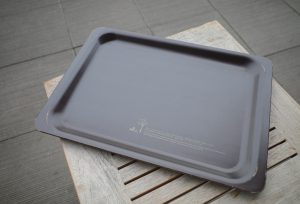
Recycling coffee dregs
Starbucks is making various efforts to build a sustainable circulation system that makes effective use of coffee dregs. For example, trays to hold drinks and food in stores are made from recycled coffee dregs and domestic wood. In some stores, coffee dregs are also used in the store’s interior design materials
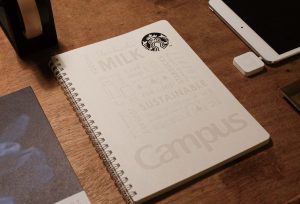
Recycling milk packs
Milk packs from stores are recycled into paper napkins and hand wipes. And in collaboration with KOKUYO Co., Ltd., they are working to recycle them into campus notebooks.
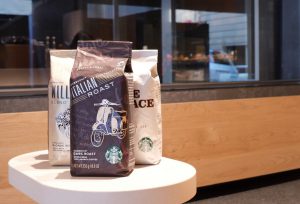
Ethical procurement
While building relationships with coffee producers and production areas, Starbucks has been making efforts to procure high-quality coffee beans in an ethical way over the long-term. By 2015, after more than a decade of effort, 99% of all coffee beans purchased by Starbucks have been ethically procured, and this has continued since then.
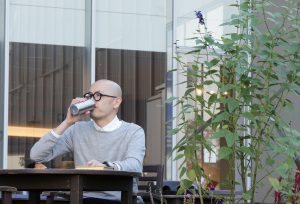
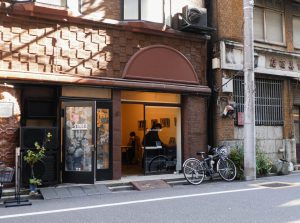
②Sustainable use of buildings
Using buildings effectively for generations is beneficial from economic and ecological viewpoints; it is also an effective way to pass down our culture and traditions.
Fine old buildings remain the history and time of people who lived and worked there.
These elements play a big part in our culture. Furthermore, the landscape of the town, where many such buildings remain, is always very beautiful.
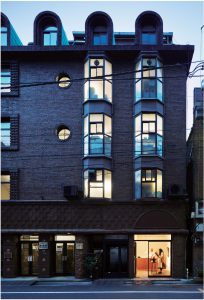
●Opening a bookstore in a fine old building
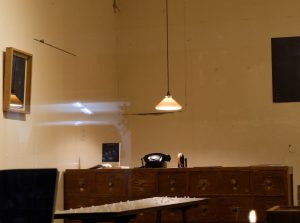 ③Limited energy and water
③Limited energy and water
When we acquire literacy on how energy and water are delivered to us, we become aware of how precious these resources are.
Yet, as we are accustomed to living by simply pressing a button and turning on a faucet, it is difficult for us to imagine limited resources; however, we unwittingly deplete our precious resources through these actions. So, what can we do to avoid resource depletion?
● Using LED lights
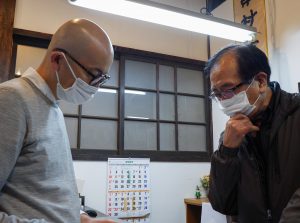
④Connecting with the local community
Unexpected treasures are often found “right under our noses” in our local community, but somehow, they may go unnoticed. These treasures include local knowledge excellent skills, and delicious food which can make our life richer. Connecting with our local community not only enhances our lives, but also provides a safety net when a disaster or something unexpected happens.
● Long-standing typographic printing shop in Ginza
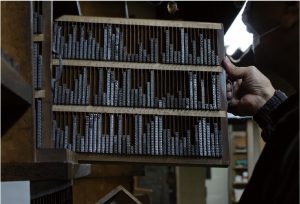
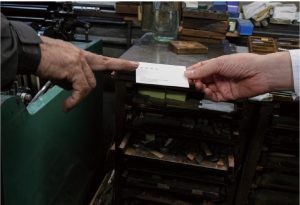
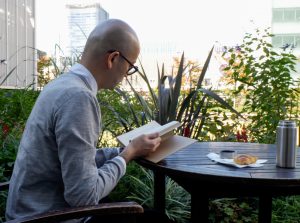
⑤Eating for the planet
While expressing our gratitude for a life in which we can eat abundant and delicious food, we should also learn to choose our food responsibly through knowing where it comes from and how it is transported to us. If we can make good choices, and at the same time not take more than we can eat, we can bring true richness to our dining table, and will make the planet richer. Eating an appropriate amount also leads to less food loss and helps maintain our health.
● Eating adequate amounts
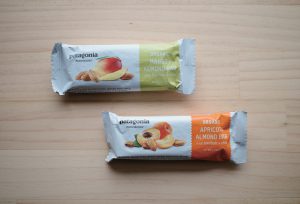
Patagonia is known as an outdoor company. It provides regenerative foods that take into consideration both the body and the earth, for example, cereal bars, soups, seafood pickled in oil, and beer. As an answer to why they are making efforts to offer food, the founder, Yvon Chouinard, describes the future in an essay: “… (A) new kind of future. One filled with deeply flavorful, nutritious foods that restore, rather than deplete, our planet. A future with widespread adoption of Regenerative Organic Certification, which ensures that food is produced in ways that build soil health, ensure animal welfare and protect agricultural workers.” (from Why Food? patagoniaprovisions.com website) What and how we eat will also ensure a sustainable future.
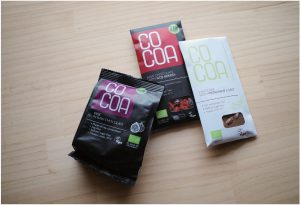
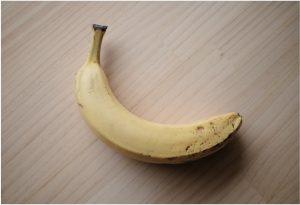
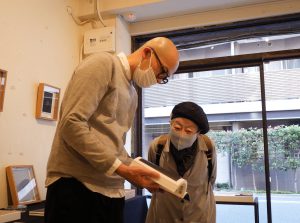
⑥Diversity is fun
It may not be easy to think or understand from the perspective of others. However, if we accept the premise that everyone is different, we may find it interesting to consider perspectives and viewpoints which differ from ours. First, from close family members and friends, let us find out “what is ‘different’, rather than the same”, and discover the fun of it.
● Having customers of all ages and ethnicities
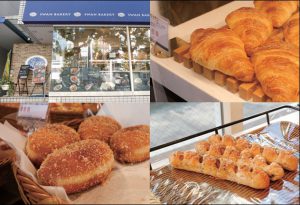
A society in which people with and without disabilities work and live together
To realize this philosophy, Yamato Welfare Foundation, and Yamato Holdings Co., Ltd. established Swan Co., Ltd., to operate Swan Bakeries. Since the opening of the Swan Bakery Ginza Store in 1998, they have helped more than 350 people with disabilities to achieve economic independence. By baking and serving delicious bread, they play an important role in creating a just and active society.
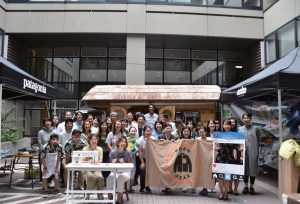 Let us touch on various fun aspects
Let us touch on various fun aspects
The windows for finding out “differences” among people and discovering fun aspects are already present in our surroundings. In addition to events held by companies and municipalities, there should be a variety of efforts in an on-campus circle, bookstores, cafes, and shops. Last year, in collaboration with Patagonia, the University of the Sacred Heart held the “Worn Wear College Tour”. It became an event that conveyed the joy of expressing one’s individuality, with clothes that can be worn with attachment for a long time. The students involved in this project have now taken steps towards submitting a proposal to the university about food loss in the cafeteria. Some students suggested making the campus paperless.
Interacting with a variety of people and looking at the “individual” is an opportunity to take a step forward.
First of all, let us participate in the aspects that are familiar to us and that we are interested in
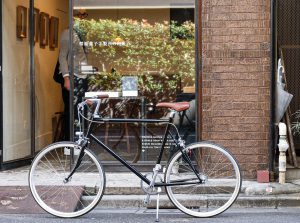
⑦Enjoying the journey
In many cases we need to travel as quickly and efficiently as possible, for example, when commuting to work or school. But sometimes it is better to take extra time to walk or go by bicycle so that we can take pleasure in the journey: finding things we may have overlooked before, or experiencing unexpected encounters which bring us joy. These alternative ways of travel improve the quality of the environment and in turn bring us added health benefits.
● Favorite bicycle
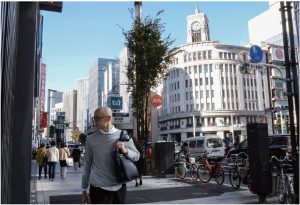
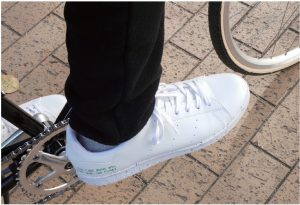
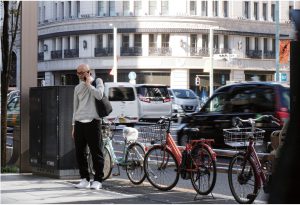
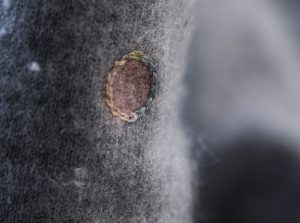
⑧Buying after knowing
Who made the product? What was it made from? How was it made? Having this knowledge when buying items deepens our understanding and motivates us to make responsible choices. This in turn allows us to become attached to things. If you have an attachment, you will use the items more carefully for a longer time. In the case of consumable items, let us make sure to find and use the items that burden the natural environment the least when discarded.
● Darning a hole in a piece of knitwear


 日本語
日本語